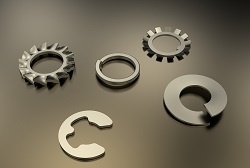
Some of the world’s most prized pieces of real estate are found along coastlines. Known for beautiful views and sea breezes, owning property on the beach can be a dream come true for homeowners. But beware - although tropical homes are famous for their eye-catching architecture and landscapes, they’re also infamous for construction challenges.
Building on the coast comes with the inevitable reality that your construction has to be more durable than most because of the daily elements the home will be exposed to. The combination of sand, salt air, and sea create wear and tear on the strongest of building materials, not to mention hurricanes and tropical storms. Despite this, warmer climates will never lose their popularity among homeowners, so here are 8 best practices for construction in these areas that will make those homes last longer.
- Metal Roofing. When in need of durable material, metal roofing materials will require a larger upfront investment over other roofing materials, but after one hurricane season, homeowners will be glad they went to the extra expense. Weather resistance and energy efficiency are just a few of the benefits associated with this form of roofing. Clients may fear common myths surrounding it such as noisiness, or harbor a sense that they may be outdated. Debunk these myths and reassure them that metal roofing will provide longevity to their homes.
- Flooring. Guide clients in the right direction by choosing flooringthat is easy to clean, durable, and water resistant. Concrete, reclaimed wood, and tile are all popular flooring construction materials. Concrete is durable and easy to clean after kids treck sand through the home. Reclaimed wood is the eco-friendliest option that works with hardy, recycled materials to create a unique look for clients. Tile is perfect for bathroom and common areas of beach homes because of its water resistance and ease of cleaning.
- Framing. Framing with corrosion in mind is extremely important . With constant exposure to salt air and moisture, you must consider corrosion resistant materials when laying out plans for a home in this type of climate. Laying a concrete foundation and framing the home with steel studs or treated wood are choices that will provide both durability and security.
- Windows and Doors. Coastal areas experience high winds and water on any given day, not to mention the winds that accompany hurricanes and storms, so be sure to install high-impact rated glass for all windows and doors to protect homeowners. Impact-rated windows and doors will withstand flying debris and are water tight to keep out moisture and humidity.
- Siding. Aside from metal siding, brick exteriors are a great option for ocean front homes. Brick will go decades before showing signs of wear and tear, and is also highly efficient for thermal and sound insulation. Brick and metal siding materials come in a variety of styles that can provide clients with whatever look they choose, as well as providing security for years to come.
- Insulation. Coastal climates experience more moisture and humidity than other regions and must be properly insulated. Floors and decks should have closed cell insulation to act as a defense against air, water and weather.
- Exterior Paint. While outdoor paint is not guaranteed to last forever, there are some materials that stand up better against the sun and moisture. Acrylic paint holds its color longer than other paint formulas. The removal of dirt and stains is also much easier with acrylic paints in areas with high salinity, and subsequent deterioration is also lessened.
- Corrosion Protection. Finally, when building homes that will be exposed to corrosive salt air, be sure to use construction materials that are enhanced with quality corrosion protection. FASCOAT® (PATENTED, SCRAIL® COATING), designed by BECK is a cost-effective way to reduce corrosion in your construction fasteners. Want to learn more? Download our FASCOAT® Brochure to learn about the application and durability of this product.

.svg.png)
